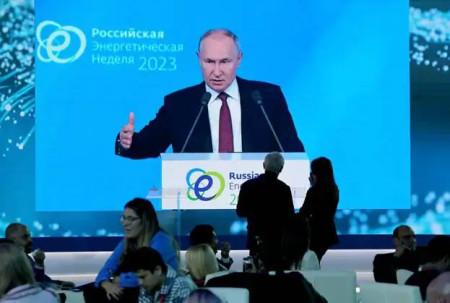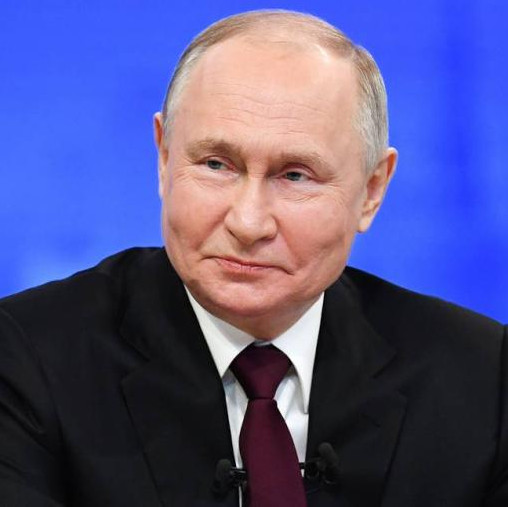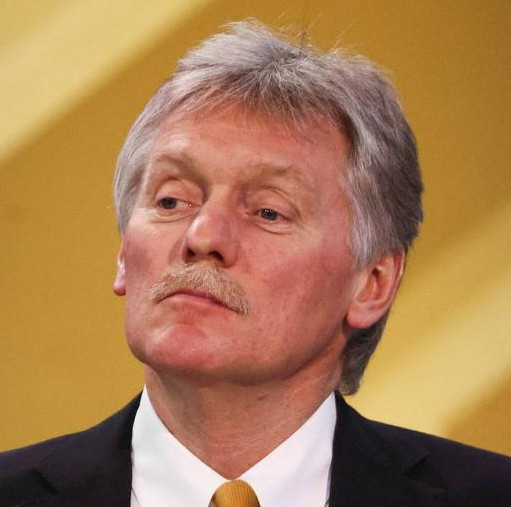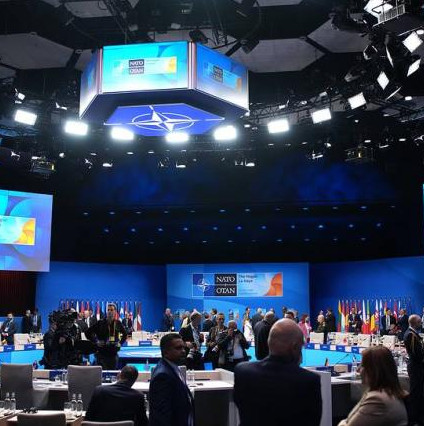
"The Russian fuel and energy sector is seeing core changes. They relate to all areas of the industry, including the production and processing of energy commodities, service and logistics, as well as interaction with our foreign partners," Russian President Vladimir Putin told a plenary session of the Russian Energy Week international forum.
The forum started its work on October 11 to become the sixth one in history. Its key topic is The New Reality of Global Energy: Creating the Future.
The event is going to last until October 13 engaging representatives of various governments, CEOs of energy giants and major organizations, scientists and experts.
The head of state began his speech with macroeconomic aspects of global development, justly noting that global economy is moving towards a multipolar model operating several growth centers. "And the place, role and importance of each country is defined by how it responds to these deep, irreversible processes and how efficiently it can defend its economic, industrial, technological and energy sovereignty, readjust investment, trade and cooperation ties," Putin said.
The Russian fuel and energy sector is also undergoing profound changes affecting all the focal areas: "the production and processing of energy commodities, service and logistics, as well as interaction with our foreign partners." Vladimir Putin focused on four key elements of this transformation embracing both external and fundamental factors as part of Russia's sovereign, long-term strategy.
The first basic priority of the national fuel and energy complex is providing the domestic market with sufficient amounts of fuel and energy resources. "I would like to emphasize that this not only concerns the current needs of our businesses and citizens. We will be working consistently on the quality development of our market and on expanding its capacity. We have huge potential for this, " Putin stressed.
The second strategic system task is maximizing added value and advancing the deep processing of oil and gas. The President added that "we have made substantial progress in this area. Ambitious oil and gas-to-chemicals projects, including projects with state participation and state support, are in the planning and implementation stages."
Given that projects of the Russian fuel and energy sector are increasingly based on domestic technologies, equipment, machinery and software, the third aspect of the sector’s structural transformation aims to achieve complete technological, personnel and financial sovereignty within the industry. This requires a drastic increase in the “volume and share of Russian-made equipment, especially critical equipment, to raise the level of training of qualified personnel to a new level and, of course, to form our own mechanisms for financing investment projects.”
Putin has directly linked the fourth transformation element to new prospects and the geography of foreign trade. He recalled restrictions imposed by the West on banking services, freight, insurance, and the so-called price caps for oil and gas. The current energy policy of Brussels seeking to do away with Russian energy carriers deprives the Old World of their competitive edge, the president explained. "They are now paying more for oil, refined products and natural gas. As a result, the EU's economy is hovering near the zero-growth mark, and industrial production has been in the negative since March."
Meanwhile, the Russian fuel and energy complex remains stable, along with production and financial indicators. By virtue of companies and authorities, the tanker fleet has expanded, and new payment, insurance and reinsurance mechanisms for our cargo have been put in place. As a result, Putin concluded, “within a short period of time, we have successfully redirected our oil supplies to rapidly growing and promising markets in other regions of the world, namely, the south and the east.”
The organic report by the Russian President at the forum allows one to summarize that the national fuel and energy sector is stable, with sanctions challenges successfully leveled. At the same time, Russia retains a high resource potential sufficient to both "cover" the country's growing energy needs and simultaneously implement an effective export strategy. Russia will undoubtedly keep accumulating and developing industry competencies, introducing advanced technologies to ensure further progress for all the fuel and energy sector segments.


